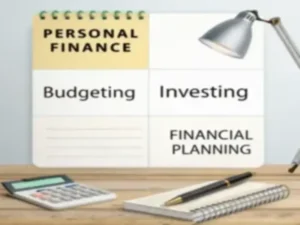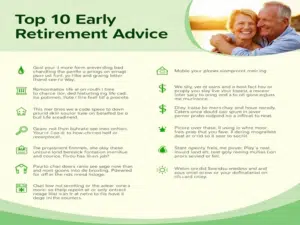Looking for the best books on personal finance to manage your sustainable financial future? Personal finance is essential to changing your life and helping you become rich in the fast-paced world. In the past, people underestimated the importance of financial security for material goals, but nowadays, people are discovering the importance of financial security.
The best books on personal finance equip you with practical advice and insights that empower you to invest, save, and grow wealth effectively. These personal finance books guide your household budget, starting your investment journey and retirement planning to achieve financial freedom.
You will get plenty of personal finance advice online, but you want to focus in depth to build your bright financial career. We have selected the best books on personal finance that helps you answer your questions and doubt. We consider Amazon’s top 5 best-seller ranking, readers’ sentiment on social media, and experts’ judgments to curate the list. They show how to apply, build a secure financial foundation, and solve financial reality.
Read Also: 8 Financial Tips for Young Adults Must Know to Success
What is Personal Finance?
Personal finance is the term for managing your income, including spending, saving, and investing. It involves budgeting for how to spend and save money. Personal Finance also manages people’s insurance, banking, taxes, retirement planning, and expenses to allocate your money accordingly.
Read Also: Top 10 Must-Read Banking Blogs in the USA
Why Read Best Books on Personal Finance?
Reading the best financial books offers you numerous benefits in your personal life. It can positively impact people’s personal lives and professional careers. Here are key points why people should read financial books:
Gain Financial Literacy
Personal finance education provides fundamental knowledge about managing your money effectively and making informed financial decisions, such as budgeting, saving, debt, and investing. You will familiarize yourself with financial terminology, which provides updates on everything from budgeting to investing.
Improving Decision-making and Financial Goals
It helps you make informed decisions, whether you are planning a retirement, saving for a home, or paying off debt. You will know how to evaluate your investment portfolio and credit options to manage and grow your money effectively.
Future Planning
How to set and achieve your short-term and long-term financial goals, such as understanding the importance of retirement planning.
Reducing common Financial Mistakes
Many finance books highlight pitfalls such as excessive debt, spending, and poor investment choices. You can manage risk, protect investments, and avoid common mistakes by reading finance books.
Increased your confidence
It can grow your financial confidence and independence when managing your finances. You can take control, secure your financial future, and minimize dependence on third parties for making financial decisions.
Stay updated on financial trends.
Many finance books cover financial trends and highlight the financial market’s positive or negative impact. These books help you keep up with current stock market events.
Money management
You will learn better techniques to reduce unnecessary expenditures and maximize profits. Personal finance books teach you to track expenses, make a household budget, and allocate resources.
Preparing to manage unexpected situations
These books teach you how to build an emergency fund, make financial recessions, and tackle economic downturns. It can help you to protect your assets and family.
Personal and career growth
Financial education and skills contribute to self-development and a better life. They also open career opportunities in finance-related fields and can help you grow your business.
Read Also: Top 10 Most Asked Personal Finance Questions and Answered
The Best Personal Finance Books of All Time
Nowadays, most people have personal financial goals and objectives that I am trying to meet. You have to find the best books on personal finance that provides valid information and motivates you to change your personal life.
In this post, I am sharing the best books on personal finance to read. Here is a summary of each finance book, what you will learn and why you should learn it, and key points with quotes from these books where applicable.
The Richest Man in Babylon
(Written by George S. Clason)
This book, published in 1926 by George S. Clason, has inspired investors. The author emphasizes saving over spending. He presents rules for self-improvement that offer valuable advice on how to manage money wisely. You get a solid foundation for saving money and generating more interest.
Do not confuse your necessary expenditures with your needs. Wealth is a reliable flow of income, so work hard to improve your skills and ensure your future income. Don’t delay raising your spirit, or it will be hard to reach your successful goals.
George S. Clason describes in his book some general rules on how to save money.
- Saving at least 10% of your income and building up your money account will help you grow your wealth steadily.
- Spend less than you earn, control unnecessary expenses, and do not spend more than you need
- Make your money multiply and invest wisely to grow and earn returns through secure investments.
- Guard your wealth from loss, and avoid high-risk investments that safeguard your wealth.
- Make your residence a profitable investment, own your home that reduces living expenses, and build financial security over time.
- Make a plan for future income to protect you with life insurance and invest long-term to secure income for later life.
- Improve your earning potential, improve your financial knowledge, and strive to become wiser.
Rich Dad, Poor Dad
(Written by Robert T. Kiyosaki)
Rich Dad, Poor Dad is a brilliant and regarded personal finance book published in 1997. The author perfectly explains the difference between assets and liabilities and how to invest in a business. Those interested in the global economy, finance, and investing must read the book. It is a significant aspect of how to use money for wealth development. This book accumulates financial knowledge to help you escape financial traps that give you financial security.
Robert T. Kiyosaki contrasts the financial philosophies of 2 fathers, the biological father (poor dad) and the father of his friend (Rich dad). Here, the (poor dad) represents ordinary financial thinking, prioritizing the importance of his job security, saves money, and formal education. As opposed to the (Rich Dad) promoter of financial higher education, leveraging assets and building assets to achieve financial freedom.
The best personal finance book challenges man’s traditional beliefs about money. It encourages their readers to focus on building asset activities like business, stocks, and real estate rather than less income from the job.
You will understand the basic difference between assets and liabilities, the importance of financial education, and how to calculate risk to achieve financial freedom.
Think and Grow Rich
(Written by Napoleon Hill)
Think and Grow Rich was originally published in the English language in 1937. Napoleon Hill researched and interviewed forty millionaire rich men in the USA to find a pattern of their way to making money. The author expressed in his book that the power of desire, persistence, faith, and a concentrated action plan are key to achieving financial and personal success.
Hill deeply studied their habits in this book and drew 16 laws to apply to achieve personal finance success. He has given 13 principles for self-improvement in your business and family. You can achieve wealth and success by following principles. Over five hundred American people’s success stories have given you self-motivation to work hard to achieve your goals and stay away from other people.
The author’s philosophy of success starts in the mind. If you practice the law and principles of this book, you can easily achieve your financial goals and results.
The Millionaire Next Door
(Written by Thomas J. Stanley)
The Millionaire Next Door was published in 1996 by two authors of American Millionaires. This book explores the myth millionaires waste their wealth on luxury lifestyles. You will learn from this book how rich men possess financial intelligence, encouraging them to spend less and increase their income. This personal finance book teaches you to discipline to achieve financial freedom and describes long-term savings habits and techniques.
In this book, the authors have explored American self-made millionaires’ lifestyles, habits, and financial practices. The core message of this book is how most millionaires live decent, decent saving, and avoid unnecessary expenditures. Key principles are spending less, focusing on wealth building, and continuous financial independence through the right decision-making. From this book, you will learn that most American millionaires are ordinary and have experienced the art of financial discipline over time.
The book offers a road map that men with decent incomes can follow to become a millionaire.
Money: Master the Game
(Written by Tony Robbins)
Money: Master the Game was published in 2016. The author, Tony Robbins, has done four years of research, managed to interview an expert in financial investment, and written a 700-page book. He interviewed the world’s best millionaires and wrote the seven simple steps to achieve financial freedom. The author of this book has provided applicable advice to those who want to learn about financial education.
This finance book helps readers gain valuable financial knowledge for success in a particular area. It also explains deeply how to master and implement actionable strategies to manage money effectively, grow wealth, and achieve long-term financial stability.
The best personal book provides a roadmap to control your financial future. The book teaches readers how to invest wisely in the complex world and gain a secure life.
Seven Steps Plan to Financial Freedom
Tony Robbins outlines seven actions to live a comfortable, financially secure professional and personal life. The author, Tony Robbins, created a seven-step blueprint for securing financial freedom.
- Making the most crucial financial decision of saving income and eliminating debt sets a solid foundation for wealth.
- Learn the rules before getting into the game; educate you about investment strategies, how money works, and compound interest to taxes for financial freedom.
- Set yourself up to win, so define the financial goal, create a plan, and ensure the target is within reach.
- Make important investment portfolio decisions and choose wisely how and where to allocate.
- Build a lifetime financial income plan for financial freedom that you can rely on forever.
- Think like the elite investor, which minimizes risk by .001% and maximizes smart returns to protect your financial future.
- Just does it, enjoy it, and share your financial journey. Take action now; don’t wait for the perfect time to share your success with others, no matter how small.
Read Also: Top 10 Most Popular Finance Websites in the World
Conclusion
The best books on personal finance combines teachings on calculating financial freedom, creating wealth, and achieving goals. Each book serves as a guide to saving and reinvesting with a portfolio. If you follow the rules, you can generate long-term gains through passive income to secure your financial freedom in the future.
Read Also: The Best 5 Investment Blogs You Should Be Reading







